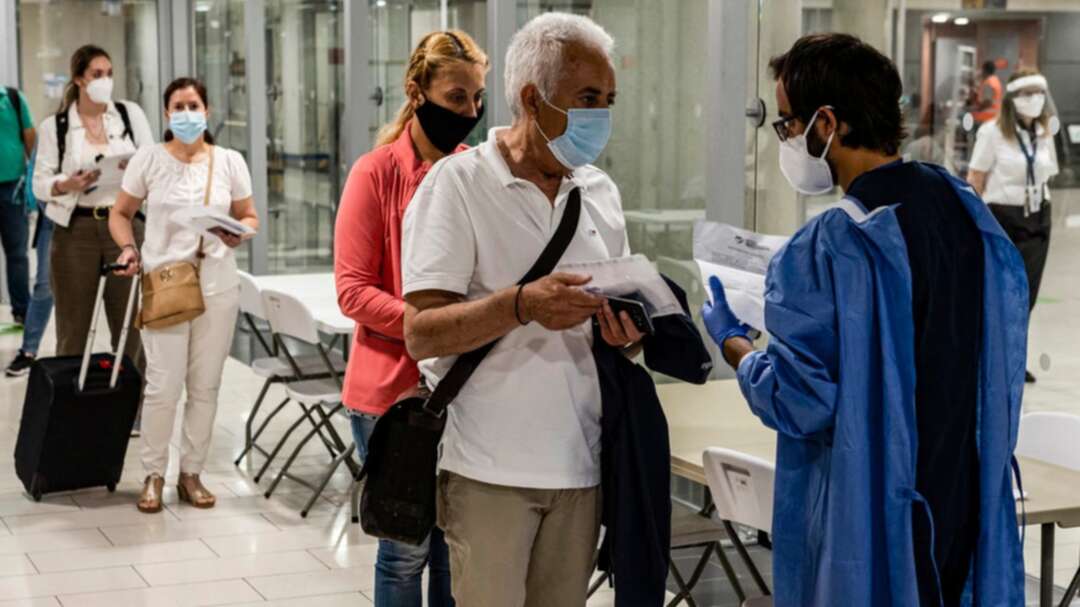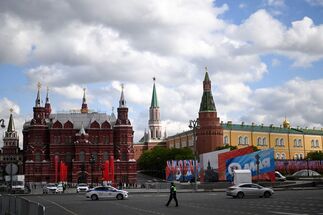-
Cyprus will buy Russia’s Sputnik COVID-19 vaccine if approved by EU regulator

Cyprus will acquire Russia’s Sputnik V COVID-19 vaccine if it is approved by the European Medicines Agency (EMA), a senior official said on Tuesday, the latest European Union member to express interest in the shot.
The EU has approved four vaccines so far and has signed deals with Western vaccine makers on behalf of the 27-member bloc, but production glitches have slowed the rollout and some member states are seeking their own solutions.Cypriot government spokesman Kyriakos Koushos was quoted by the semi-official Cyprus News Agency saying authorities would order 50,000 doses, subject to prior vetting and approval by the pharmaceuticals regulator.
Hungary and Slovakia have acquired the Russian vaccine, and the Czech Republic has said it may place an order.
A health ministry spokesperson in Cyprus told Reuters last week authorities could not take a position on whether the specific vaccine or any other vaccine should be approved unless all available data was assessed by the EMA.
The EMA had on March 4 announced it had started a rolling review of the vaccine. That review would speed up any approval process by allowing researchers to submit findings in real-time before final trial data is ready.
The shot’s efficacy was initially greeted with skepticism by some Western scientists after Russia approved it in August last year without waiting for the results of full clinical trials.
However, scientists said it was almost 92 percent effective in fighting COVID-19, based on peer-reviewed late-stage trial results published in The Lancet medical journal last month.
The two-shot vaccine uses two different weakened common cold viruses to deliver immune-building protein to the human body.
source: Reuters
Image source: AFP
Levant
You May Also Like
Popular Posts
Caricature
BENEFIT Sponsors Gulf Uni...
- April 17, 2025
BENEFIT, the Kingdom’s innovator and leading company in Fintech and electronic financial transactions service, has announced its sponsorship of the “Innovation and Sustainable Technology Solutions Competition (GU - IST Solutions), hosted by Gulf University at its main campus.
This strategic sponsorship reflects BENEFIT’s active role in advancing technological innovation and fostering sustainable solutions to future challenges. It also seeks to empower Bahraini youth by enhancing their skills, capabilities, and competitiveness in innovation and solution development—contributing meaningfully to the broader goals of sustainable development across all sectors.
As part of BENEFIT’s active involvement in the competition, the company has announced that Hanan Abdulla Hasan, Senior Manager of Public Relations and Communication, will serve on the competition’s supervisory committee. Her upcoming participation reflects BENEFIT’s forward-looking commitment to championing academic and professional excellence.
Commenting on the occasion, Hanan Abdulla Hasan, Senior Manager of Public Relations and Communication at BENEFIT, said, “We are privileged to support this pioneering initiative, which aligns seamlessly with BENEFIT’s enduring commitment to fostering innovation and nurturing the potential of Bahrain’s youth. Our participation is rooted in a deep sense of social responsibility and a firm belief in the pivotal role of innovation in shaping a sustainable future. Through such platforms, we seek to empower the next generation with the knowledge, skills, and foresight required to develop impactful solutions that address future challenges, in line with the United Nations Sustainable Development Goals 2030.”
Dr. Aseel Al Ayash Dean of the College of Engineering in Gulf University commented, “We extend our sincere gratitude to BENEFIT for their generous sponsorship and support of the Innovation and Sustainable Technology Solutions Competition. This contribution plays an instrumental role in helping us achieve the strategic goals of this initiative, namely, cultivating a culture of innovation and sustainability, encouraging efforts that address the imperatives of sustainable development, and enhancing the practical and professional capabilities of our students and participants.”
The event will bring together a diverse spectrum of participants, including secondary school students, university undergraduates, engineers, industry professionals, entrepreneurs, academic researchers, and subject matter experts representing a wide range of disciplines.
The competition seeks to inspire participants to develop and present innovative, sustainable technologies aimed at addressing pressing environmental, social, and economic challenges. It encourages the formulation of business models that integrate advanced technological solutions with core principles of sustainability. Moreover, it serves as a platform for emerging leaders, entrepreneurs, and innovators to contribute to the advancement of the Sustainable Development Goals, promote the ethos of responsible technology, and demonstrate its transformative potential across various sectors.
Attendees will have the opportunity to view a series of project presentations submitted by participants, covering diverse areas such as eco-friendly product design, smart and sustainable innovations, renewable energy technologies, water conservation and management, waste minimisation and recycling, green architectural solutions, and sustainable transportation systems. Outstanding projects will be formally recognised and awarded at the conclusion of the event.
opinion
Report
ads
Newsletter
Subscribe to our mailing list to get the new updates!






















